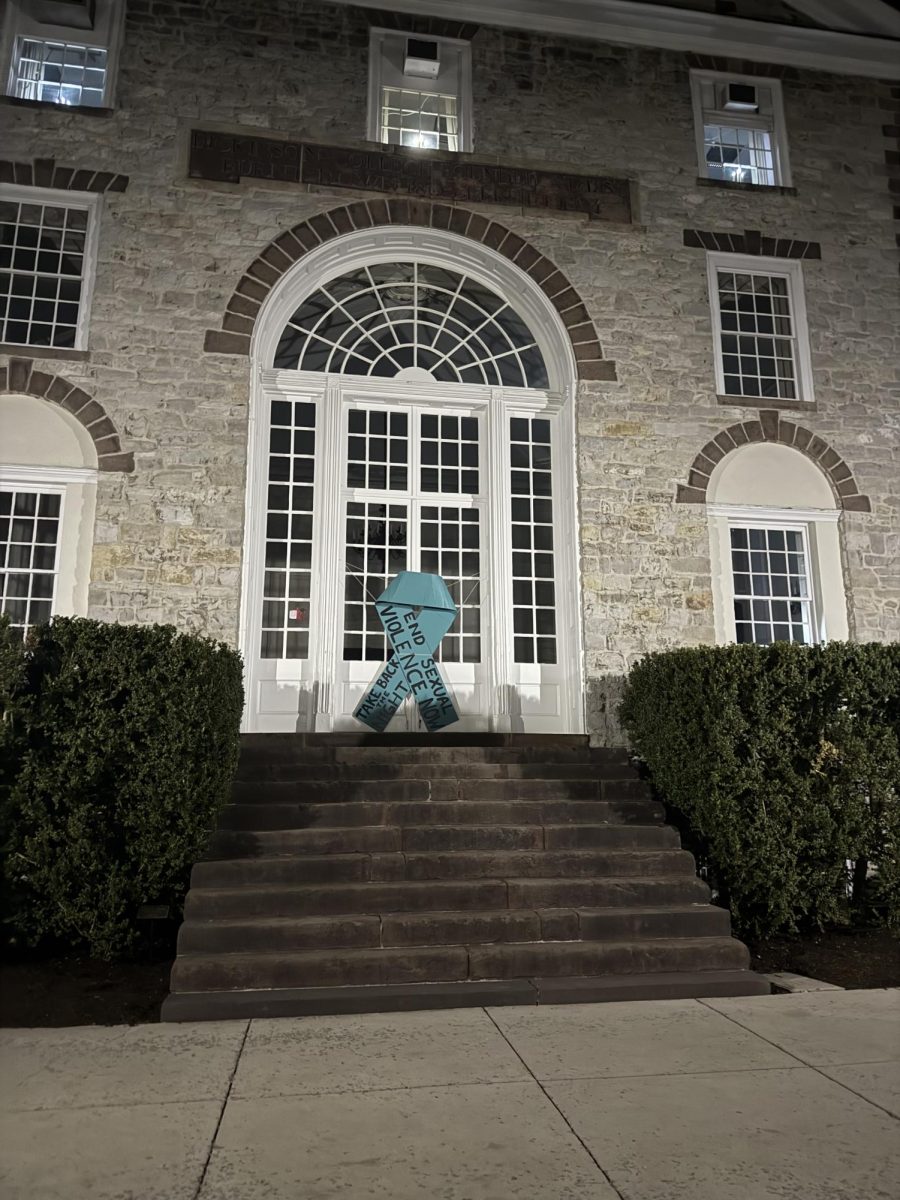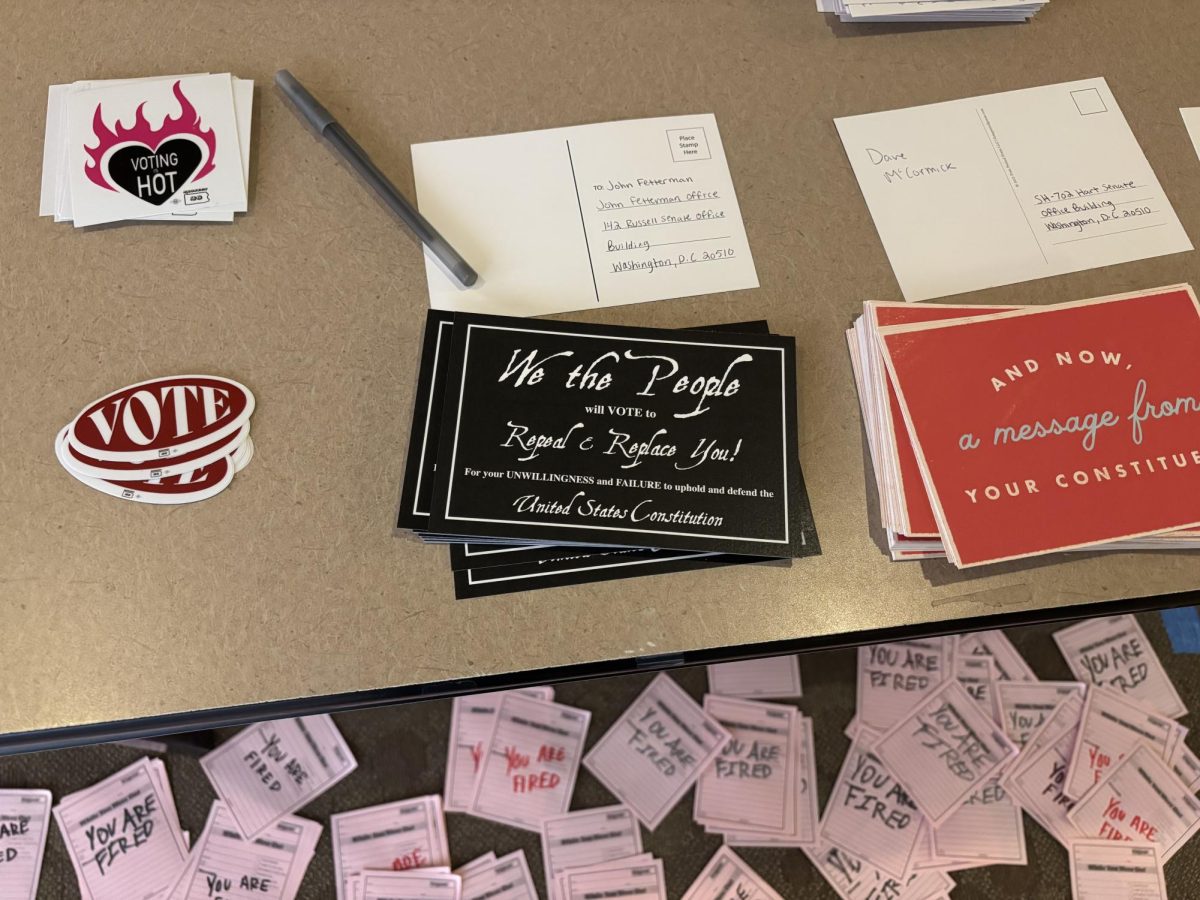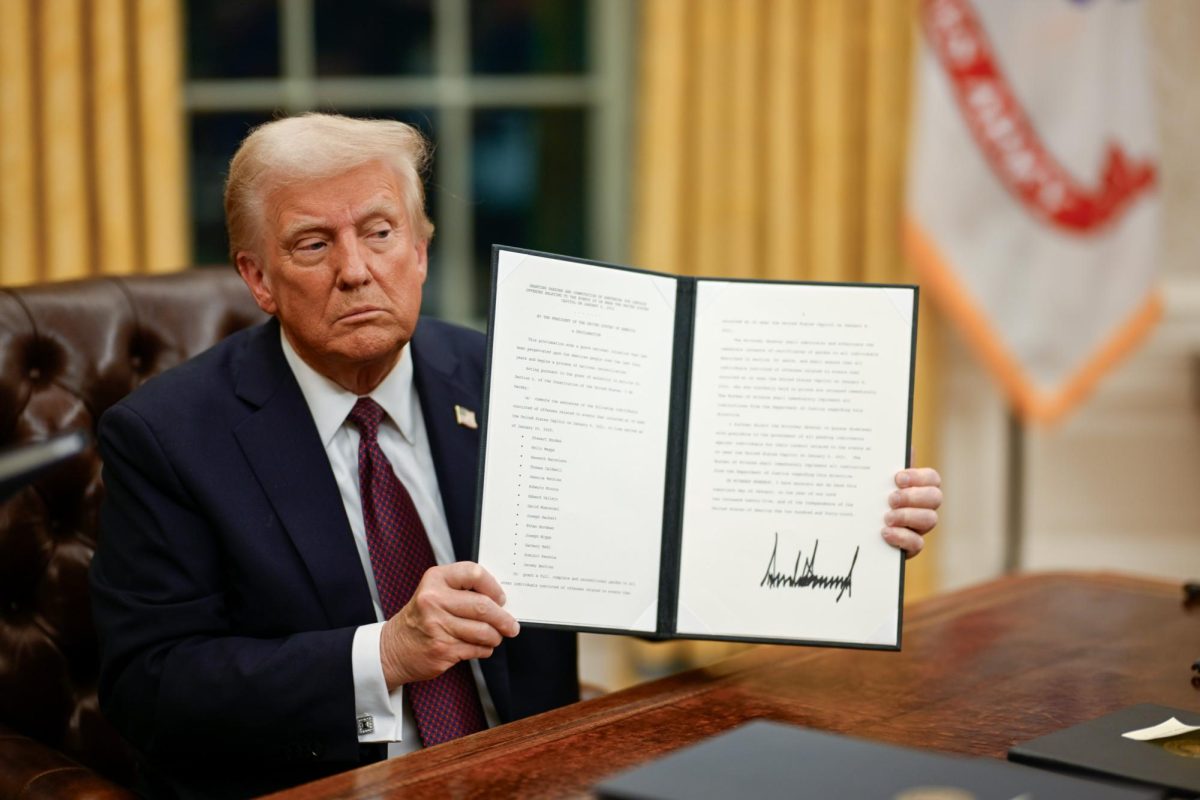The ongoing conflict in Israel and Palestine has flared up once again in one of the worst instances of violence in the region in the past few years. After several attacks by Hamas militants into Israel on Oct. 7, the latest war between Israel and Hamas has seen thousands of Israeli and Palestinian casualties. Millions of civilians have also been displaced from their homes.
Many college campuses have experienced protests and threats of violence against various religious groups—including Jews, Muslims, Arabs and others—in the wake of the war. Cornell University canceled classes after a student had threatened to kill Jewish students on campus. While cases of hate crimes have occurred previously at Dickinson, such as anti-semitic stickers being placed on the Asbell Center for Jewish Life between Nov. 2021 and Jan. 2022, there have been no major incidents on campus since the Oct. 7 attacks.
The Dickinson community has held a number of events since Oct. 7 to understand and cope with what is happening in Israel and Palestine. Given the need for time to prepare, events began on Oct. 26 with a teach-in hosted by the Middle East Studies department, which was followed up with a non-denominational candlelight vigil for all those impacted on Oct. 30.
When announcing the vigil, Andrea Lieber and Mireille Rebeiz, chairs of the Judaic Studies and Middle East Studies departments respectively, said “This is an inclusive space for vulnerability and dignity with no room for national divisions.” The vigil, originally planned to be held on the steps of Old West, was moved to the HUB due to inclement weather, and had students recite poems and the community mourn those impacted and those who have lost their lives.
The teach-in took place in the Anita Tuvin Schlechter Auditorium (ATS), which was significantly filled for the event. Those who wanted to attend were required to pre-register, and most questions the panel answered were submitted beforehand. The panel was made up of seven professors from the Middle East Studies department, including Rebeiz, Magda Siekert, David Commins, Andrea Lieber, Peter Schadler, Ed Webb and Matthew Pinsker.
The region that makes up the modern Israeli state has a history that Commins described as “contested and complex,” with many people having different understandings and perceptions of the region. Webb said in regards to media coverage of the war that “nobody is getting this right, because I don’t think that is feasible,” due to the way in which perceptions of the region are contested. The current phase of the region’s history can be traced back to the British withdrawal from the region after World War II.
The young Israeli nation managed to survive an assault from its Islamic neighbors in 1948, and again in 1967 where it managed to secure a large amount of land including what is today Palestine. Israel began to settle the West Bank, one of the regions gained in the 1967 war, with over 400,000 Israeli settlers. Hamas was created in 1987 as part of uprisings against the occupation of the West Bank and the Gaza Strip. Israel formally withdrew from Palestine in 2005, and Hamas took over the following year. However, Israel still plays a strong role in the region, which includes cutting electricity and internet to the region with the beginning of the conflict, actions which have been characterized as collective punishment.
When it comes to how the Oct. 7 attack was possible, Webb pointed to an “excessive confidence that Hamas was contained” and they were “diverted with settlers and territorial expansion” in the West Bank. However, there will likely be a commission of inquiry into the events. Despite a large deployment of American warships to the region, Webb does not believe that America will intervene, saying their “primary role is deterrence” and wanting to try and stop the conflict from escalating into a regional war.
Predicting the future of the conflict is difficult, but Webb believes that there will be “significant military action” on the part of Israel to combat Hamas, and that the current unity government led by Prime Minister Benjamin Netanyahu will not last long. Netanyahu’s leadership will likely play a role in this, as Webb said “Part of the difficulty for the [Israel Defense Forces] … is that their political leadership has not given them a clear agenda.”
The role of the media in the conflict also came up for Webb in the first questions of the teach-in. He said that terrorism is a tool for media attention, and it has been “sadly, [a success] for Hamas.” Siekert also added to this point of the media’s role in the conflict, adding that it is important to diversify news sources, especially with Israeli sources who are on the grounds of the conflict.
A point made by several of the professors at the teach-in is the need to remember and acknowledge the humanity of those being impacted by the war. When asked how to support Jewish friends during this trying time, Lieber said “I think it is important to lead with your humanity,” and to “be human first and reach out to your friends,” a sentiment which she also suggested for Arab and Muslim friends and community members. She also mentioned the fact that “that this is a moment in Jewish history where Jews all over the world are experiencing… inter generational trauma,” with Oct. 7 being the deadliest day for Jewish people since the Holocaust.
On the other side of this issue of humanizing the conflict, Shadler, who teaches a class called “The Problem of Evil,” said there is “a need to humanize the humans who committed [the Oct. 7 attack],” as it is vital to understanding why this conflict is happening. Siekert and Rebeiz both developed this point with the former saying that Hamas “was not born in a vacuum,” and that the despair that Hamas is levying is felt by a lot of Palestinians who do not sympathize with the group.
The issue of humanization came to a head at the end of the talk. Rebeiz, who has family in Palestine, Israel and neighboring Lebanon, recognized that “we’re talking about human lives,” and that she feels the analysis of the conflict is “reaching a point where this is too f—— academic for me,” which garnered clapping from the crowd.
In an email from President John E. Jones III ’77, P’11 sent to the campus community four days after the first attacks by Hamas militants, he said “Hatred, whether antisemitism, Islamophobia, racial animus or in any other form, has no place on this campus, nor anywhere in a civilized society.” He also mentioned a hesitancy to comment on the conflict, saying that many college presidents have “an almost reflexive tendency… to render editorial comments stating their personal perspectives, despite the fact that many on their campuses and across the alumni network might disagree with their views,” but felt the need to due to the way that “many members of our community are deeply affected.”
Students who would like further support in handling personal issues around the conflict, such as emotional or religious support, can look to places such as the Wellness Center, the Asbell Center and the Popel Shaw Center, among others, for them to feel comfortable.







